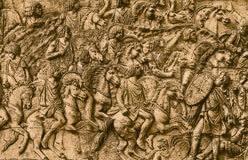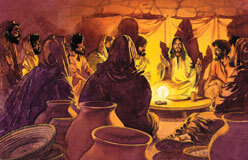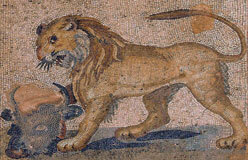How did a small group of Jesus’s followers, located in a remote outpost of the Roman Empire, create an empire-wide state religion? It took almost 400 years, but Christianity slowly spread and grew in power.
In the early days, Rome’s reaction to the new religion was mixed. Under some emperors, Christians were persecuted for their beliefs. Other emperors ignored the new religion. The Roman official Pliny the Younger wrote to the Emperor Trajan, who ruled from 98 to 117 CE, asking how to treat Christians. [[The emperor replied in part, “They are not to be sought out; if they are denounced and proved to be guilty, they are to be punished, with this reservation, that whoever denies that he is a Christian and quite clearly proves it—that is, by worshipping our gods—he shall gain pardon.”*]] Despite persecution, the religion grew, especially in the eastern part of the empire, where it had begun. Large cities in the western empire also had churches. They started as small groups that met secretly in private homes. Even in Rome, under the nose of the emperor, the apostle Paul started a church in 50 CE.
*From Pliny, “Letters,” in The Romans: From Village to Empire. M.T. Boatwright, D.J. Gargola, and R.J. Talbert, eds. Oxford University Press, 2004.








